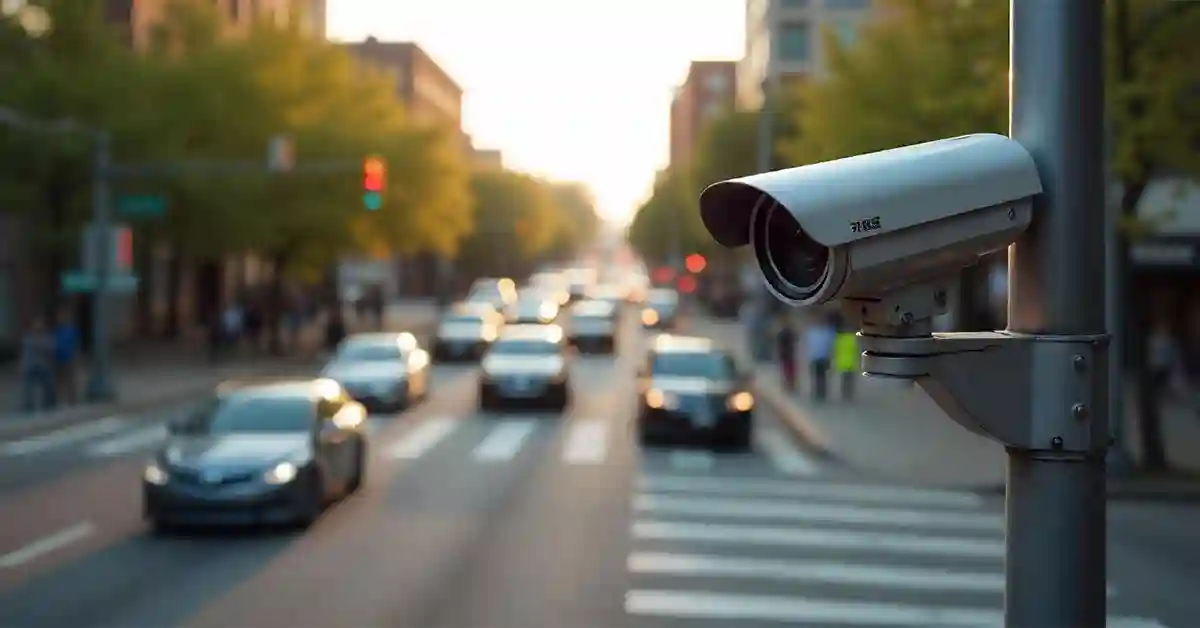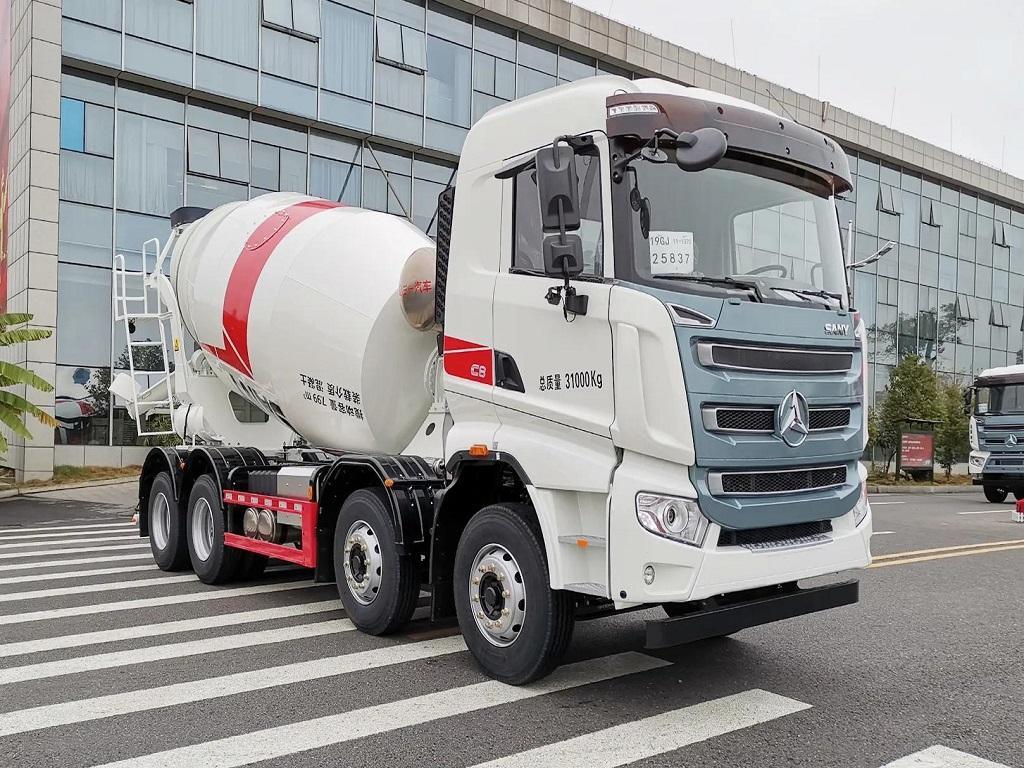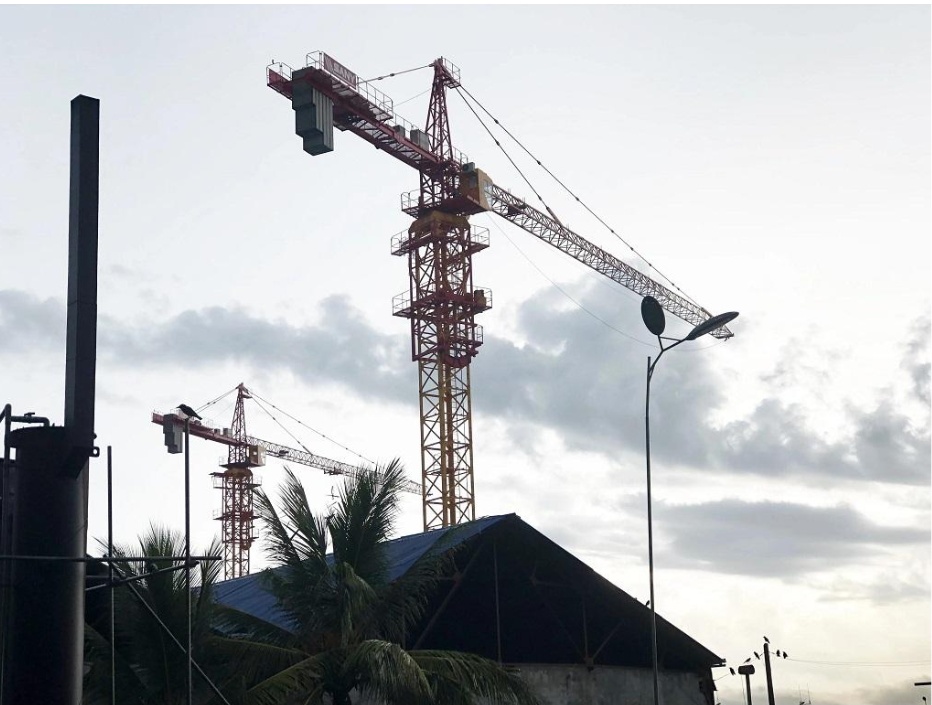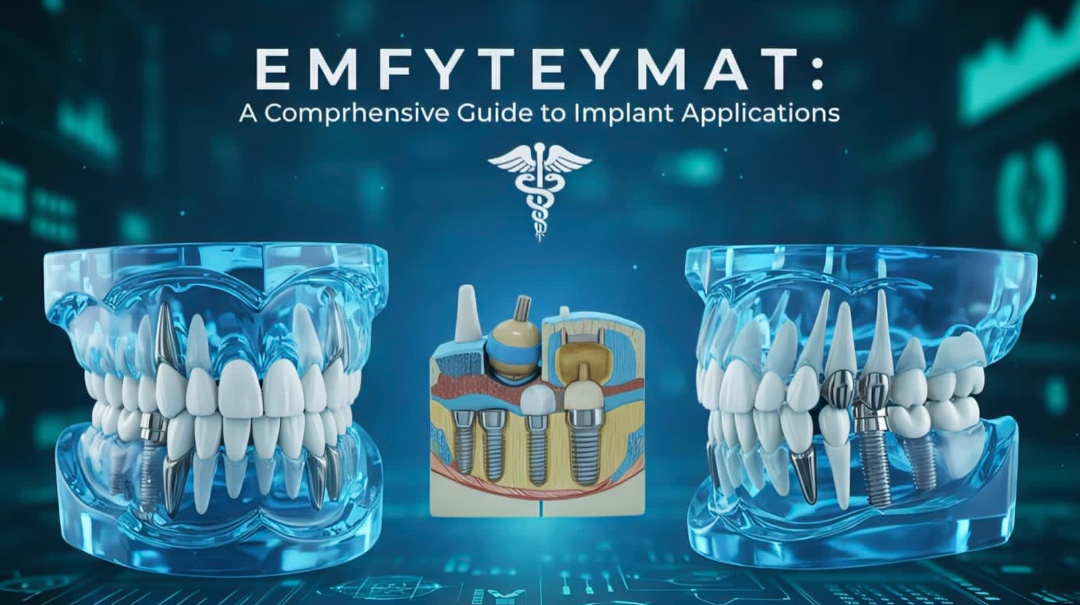Traffic cameras have become a common feature on roads throughout the United States, and Rhode Island is no exception. These cameras are designed to improve road safety by monitoring driver behavior and enforcing traffic laws. But how do they work, and what impact do they have on drivers and the community? In this blog post, we’ll explore the role of Rhode Island traffic cameras, their benefits, and their potential drawbacks.
Why are Rhode Island traffic cameras important? How do they contribute to safer roads? These questions often arise when discussing traffic enforcement. In addition to reducing speeding and running red lights, traffic cameras can help law enforcement identify dangerous intersections and prioritize road safety improvements. However, some people argue that these cameras intrude on privacy and lead to unnecessary fines. We’ll address these concerns and more as we explore the implications of traffic cameras in the state of Rhode Island.
Ultimately, understanding the pros and cons of Rhode Island traffic cameras helps residents make informed decisions about road safety. Whether you’re a local driver or simply interested in learning more about these devices, this blog post will provide valuable insights. Keep reading to discover the facts behind the cameras, and uncover how they affect the way we drive and experience Rhode Island’s roads.
What Are Traffic Cameras?
Traffic cameras are devices installed along roads and intersections to monitor and enforce traffic laws. They capture images or videos of vehicles, providing evidence of violations such as speeding or running red lights. These cameras play a crucial role in ensuring road safety and reducing accidents.
In Rhode Island, traffic cameras are strategically placed at high-risk locations. They help law enforcement keep an eye on busy intersections and highways, ensuring that drivers follow the rules. By capturing images of violating vehicles, these cameras assist in holding drivers accountable for their actions.
Overall, traffic cameras serve as an essential tool for promoting safe driving habits. They encourage drivers to be more cautious, ultimately leading to fewer accidents and safer roads. While some people may have concerns about privacy, the benefits of traffic cameras in reducing traffic violations and improving public safety are undeniable.
How Do Traffic Cameras Work?
Traffic cameras are sophisticated devices that use advanced technology to monitor vehicles. They capture images or videos of cars as they pass through specific locations, such as intersections or speed zones. These cameras can be triggered by sensors or timers, ensuring accurate and reliable data collection.
In Rhode Island, traffic cameras are equipped with motion sensors and radar technology. When a vehicle exceeds the speed limit or runs a red light, these sensors detect the violation and activate the camera. The camera then captures an image of the vehicle’s license plate, which is used to issue a citation to the offending driver.
The process of capturing and processing traffic violations is automated, ensuring accuracy and efficiency. This technology allows law enforcement to focus their efforts on more pressing issues, while still maintaining road safety. By utilizing traffic cameras, Rhode Island can better monitor driver behavior and enforce traffic laws.
The Benefits of Traffic Cameras
Traffic cameras offer several advantages that contribute to safer roads and improved driver behavior. One of the most significant benefits is their ability to deter traffic violations. When drivers know that cameras are monitoring their actions, they are more likely to follow the rules and drive safely.
Another benefit of traffic cameras is their role in reducing accidents. By enforcing speed limits and red light rules, these cameras help prevent dangerous driving behaviors that can lead to collisions. Studies have shown that intersections with traffic cameras experience fewer accidents, making them safer for everyone.
Traffic cameras also assist law enforcement in identifying problem areas. By analyzing data from these cameras, officials can determine which locations are prone to traffic violations and accidents. This information helps prioritize road safety improvements and allocate resources more effectively.
Potential Drawbacks of Traffic Cameras
While traffic cameras offer many benefits, there are also some potential drawbacks to consider. One common concern is privacy. Some people feel that being constantly monitored by cameras is an invasion of their personal space and freedom.
Another issue is the potential for errors in issuing citations. Although traffic cameras are designed to be accurate, mistakes can still occur. For example, a camera might capture an image of a vehicle that appears to be speeding, but the driver may not have been at fault. These errors can lead to unfair fines and penalties for innocent drivers.
Lastly, there is the argument that traffic cameras prioritize revenue generation over safety. Some critics believe that the primary purpose of these cameras is to generate income through fines, rather than genuinely improving road safety. This perception can lead to public distrust and resistance to traffic camera implementation.
Traffic Cameras and Road Safety
Traffic cameras play a vital role in promoting road safety by deterring dangerous driving behaviors. By monitoring intersections and speed zones, these cameras encourage drivers to be more cautious and responsible. This increased awareness leads to a reduction in traffic violations and accidents.
In Rhode Island, traffic cameras have been instrumental in improving road safety. They help law enforcement identify high-risk locations and prioritize safety measures, such as installing additional signage or adjusting traffic signal timing. These efforts contribute to a safer driving environment for everyone.
Overall, traffic cameras are an essential tool for maintaining road safety and preventing accidents. While there may be concerns about privacy and fairness, the benefits of these cameras in promoting safe driving habits are undeniable.
How Traffic Cameras Impact Driver Behavior
Traffic cameras have a significant influence on driver behavior. When drivers know they are being monitored, they are more likely to follow the rules and drive safely. This increased awareness leads to a reduction in traffic violations and accidents.
In Rhode Island, traffic cameras have been shown to improve driver behavior at monitored intersections and speed zones. By enforcing traffic laws, these cameras help create a culture of safety and responsibility among drivers. This increased accountability ultimately leads to safer roads for everyone.
Overall, traffic cameras play a crucial role in shaping driver behavior and promoting road safety. While there may be concerns about privacy and fairness, the positive impact of these cameras on driver behavior is undeniable.
Legal Concerns Surrounding Traffic Cameras
Traffic cameras have faced legal challenges in various states, with opponents arguing that they infringe on individual rights and privacy. Some people feel that being constantly monitored by cameras is an invasion of their personal space and freedom.
In Rhode Island, legal concerns surrounding traffic cameras mainly focus on privacy and the accuracy of citations. While these cameras are intended to improve road safety, some individuals argue that they may lead to unnecessary fines and penalties for innocent drivers.
Despite these concerns, traffic cameras have been proven to enhance road safety and reduce accidents. By monitoring driver behavior and enforcing traffic laws, these cameras contribute to a safer driving environment for everyone.
The Role of Law Enforcement in Traffic Camera Implementation
Law enforcement plays a crucial role in the implementation and management of traffic cameras. These agencies are responsible for monitoring camera data, issuing citations, and addressing any concerns related to privacy and fairness.
In Rhode Island, law enforcement works closely with traffic camera vendors to ensure accurate and reliable data collection. They are also responsible for reviewing images and videos captured by the cameras to determine if a violation has occurred.
By working together, law enforcement and traffic camera vendors can ensure that these devices effectively promote road safety. While there may be concerns about privacy and fairness, the benefits of traffic cameras in reducing traffic violations and accidents are undeniable.
The Future of Traffic Cameras in Rhode Island
The future of traffic cameras in Rhode Island looks promising, as these devices continue to play a crucial role in promoting road safety. Advances in technology will likely lead to more accurate and efficient monitoring systems, further enhancing their effectiveness.
As traffic cameras become more prevalent, it is essential for communities to engage in open discussions about their benefits and drawbacks. By addressing concerns related to privacy and fairness, communities can work together to develop solutions that balance safety and individual rights.
Ultimately, the future of traffic cameras in Rhode Island will depend on the collaboration between law enforcement, policymakers, and the public. By working together, these groups can ensure that traffic cameras continue to contribute to safer roads and improved driver behavior.
FAQs With Answers
What are the main benefits of Rhode Island traffic cameras?
Traffic cameras in Rhode Island help improve road safety by deterring dangerous driving behaviors and reducing accidents. They encourage drivers to follow the rules and provide valuable data for identifying high-risk locations. This information assists law enforcement in prioritizing safety measures and allocating resources effectively.
How do traffic cameras impact driver behavior?
Traffic cameras influence driver behavior by increasing awareness and accountability. When drivers know they are being monitored, they are more likely to follow traffic laws and drive safely. This leads to a reduction in traffic violations and accidents, ultimately creating a safer driving environment.
Are there any legal concerns about traffic cameras in Rhode Island?
Legal concerns surrounding traffic cameras in Rhode Island mainly focus on privacy and the accuracy of citations. While these cameras are intended to improve road safety, some individuals argue that they may lead to unnecessary fines and penalties for innocent drivers. Open discussions about these concerns can help communities develop balanced solutions.
What role does law enforcement play in traffic camera implementation?
Law enforcement is responsible for monitoring camera data, issuing citations, and addressing concerns related to privacy and fairness. They work closely with traffic camera vendors to ensure accurate and reliable data collection, which helps promote road safety and reduce traffic violations.
How will traffic cameras evolve in the future?
As technology advances, traffic cameras will likely become more accurate and efficient, further enhancing their effectiveness in promoting road safety. Communities must engage in open discussions about the benefits and drawbacks of these devices to develop solutions that balance safety and individual rights.
Conclusion
Traffic cameras in Rhode Island play a vital role in improving road safety by deterring dangerous driving behaviors and reducing accidents. While there may be concerns about privacy and fairness, the benefits of these cameras in promoting safe driving habits are undeniable. By understanding their role and addressing potential drawbacks, communities can work together to create a safer driving environment for everyone. If you’re interested in learning more about traffic cameras and their impact, consider exploring additional resources and engaging in discussions with local law enforcement and policymakers.










